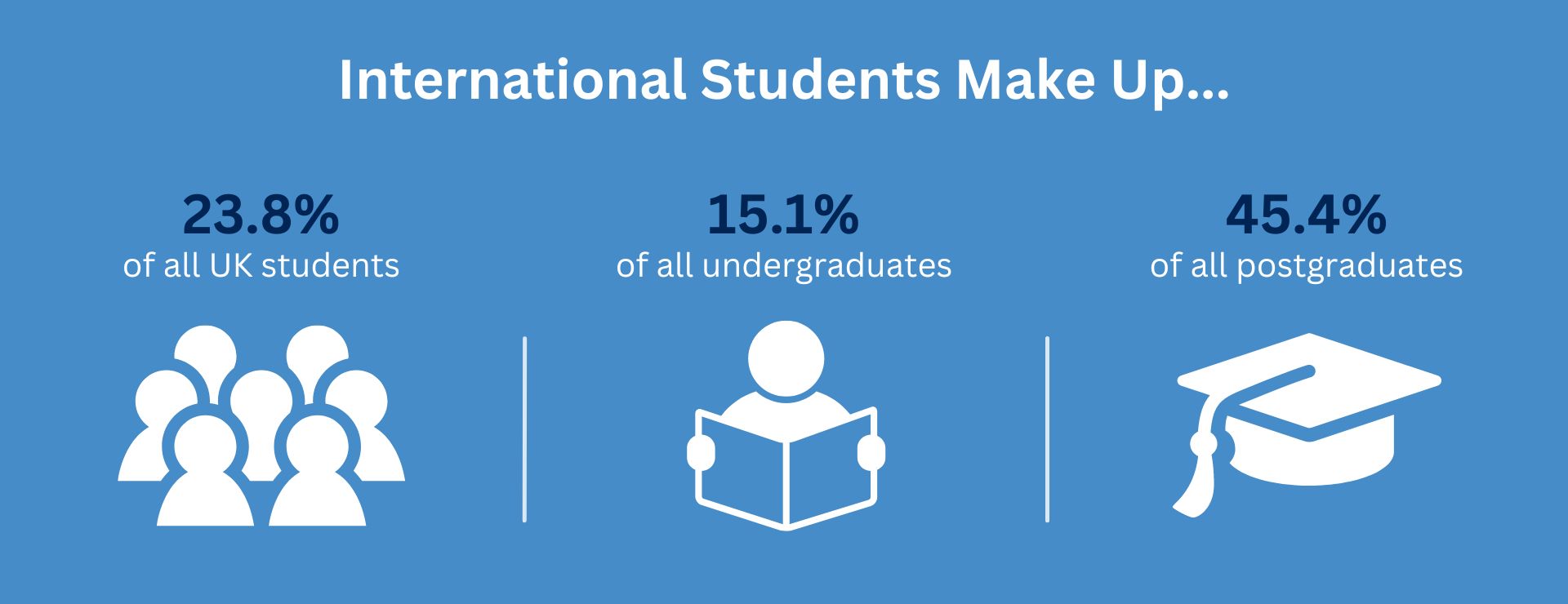Each year, a wave of students flocks to UK universities at the beginning of autumn. This might have you thinking: is it worth opening up my property to this demographic?
The simple answer is: absolutely. Student rentals have proven to be quite the golden opportunity for landlords, thanks to the steady demand and good rental yields.
That being said, many landlords still have reservations about renting to students, mainly due to concerns about their thin credit history. So, let’s dive into ways you can ease these worries and handle student rentals like a pro.
- Do you need an HMO licence to rent to students?
- Why do students fail referencing?
- What is a guarantor?
- What if the student tenant can’t provide a guarantor?
- Do you need to perform a Right to Rent check on student tenants?
Collect up to £12,000 of rent in advance with our Rent Now service. Find Out More
Do you need an HMO licence to rent to students?
In England and Wales, whether you need an HMO licence depends on the number of tenants and the type of property:
- Large HMO: If the property is occupied by five or more tenants from different households who share amenities, it’s classified as a large House in Multiple Occupation (HMO) and will require an HMO licence.
- Small HMO: If the property is occupied by at least three students from different households, it may be considered a small HMO. Whether a licence is needed depends on the requirements of the local council. In this case, it’s essential to check with your local council for specific rules and any additional licensing requirements.
In Scotland, you generally need an HMO licence if you are renting to three or more unrelated tenants who share basic amenities, regardless of the property size.
You can find more information about HMOs here.
Why do students fail referencing?
Students might fail referencing because they often don’t have a long rental history or a solid credit record.
Since many are living away from home for the first time, it can be hard to prove they’ve been responsible tenants before.
They might also not have a steady income yet and could rely on family for support, which can make it tricky to show they can afford the rent.
Understanding these challenges can help you find ways to work around them, like asking for a guarantor or requesting rent in advance.
What is a guarantor?
A guarantor is someone who agrees to cover the rent and any potential damages if the tenant can’t meet their obligations.
Typically, this person is a close family member or friend who has a good credit history and stable financial situation.
Since many students are renting for the first time and may not have a strong financial record, having a guarantor provides extra security for landlords.
You might also be interested in…
- How to Conduct a Property Viewing Online
- When Will Section 21 Be Scrapped?
- 5 Mistakes Tenants Make in Their Property Enquiries (and How to Fix Them)
- What Tenants Need to Know About the Renters’ Rights Act
- 6 Most-Viewed Properties of the Month
The guarantor must be based in the UK and they need to pass a referencing check to ensure they are financially stable and can meet their obligations.
This arrangement provides extra security for landlords, making it easier for students to secure housing despite their limited financial history.
What if the student tenant can’t provide a guarantor?
It’s possible that a student tenant interested in your property might not be able to provide a guarantor, especially if they’re coming to the UK from abroad.
One common approach is to request rent in advance, which helps cover any potential rent arrears.
This can be arranged through our Rent Now tenancy creation service, allowing you to secure the rent upfront.

Another approach is to seek additional references or proof of financial stability, such as evidence of funds or a letter from the student’s university.
These measures help ensure that the landlord is protected even without a UK-based guarantor.
Remember that some rent guarantee insurance policies and deposit replacement schemes require all tenants to pass referencing or have a guarantor who meets these criteria.
If you’re depending on an insurance scheme, it may not cover rent loss if your student tenant fails to meet these requirements.
Get an in-depth overview of student tenants and their guarantors. Order Tenant Referencing
Do you need to perform a Right to Rent check on student tenants?
Yes, you do need to carry out a Right to Rent check on student tenants, just like with any other tenant.
This ensures that all prospective tenants have the legal right to live in the UK.
If they are a British or Irish citizen, you can ask to see their passport or a certificate of registration or naturalisation.
If they are not a British or Irish citizen, they’ll need to provide you with their Righ to Rent share code or show you their original immigration documents in person.



And you need to consider HMO
OpenRent makes it difficult to rent to international tenants, by requiring a UK debit/credit card for the deposit. How will someone have that if they just arrived in the UK? Any bank card should be accepted
Maybe in their first year, but not the rest of time. A lot of the richer ones can get U.K. debit cards eg HK students use HSBC who will do this, so it acts as a kind of filter